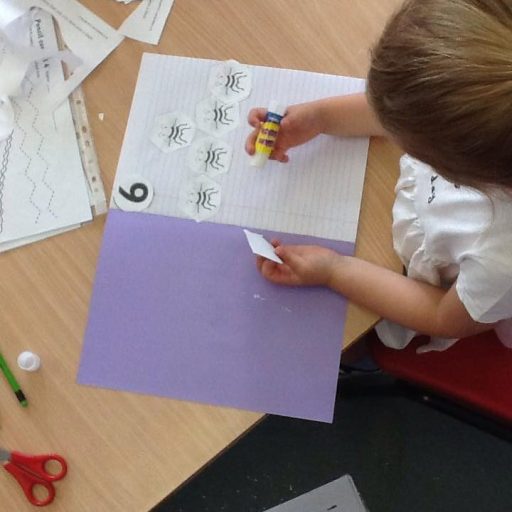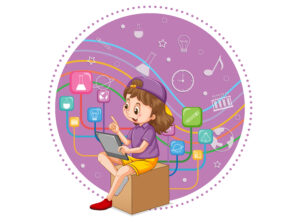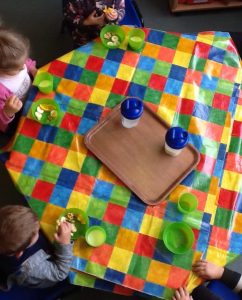1. Preschool Through Play
The concept of preschool may be new to your child, one which they might not fully understand. Therefore, exploring the new experience of preschool education through play is a great way to ensure they comprehend what preschool is as well as what will be happening when their journey first begins.
A great way to get your child ready is by pretending to go school with your child. This can be done by; packing up their belongings in their backpack, teaching them how to remove their coat and how to hang up their bag.
From there you can also take turns in pretending to be the teacher and the pupil, carrying out some different activities that may occur throughout your child’s day such as reading, singing and colouring.
Finally, you can kickstart their journey further by teaching your child some simple social skills to help them gain confidence with interaction; this may include taking turns when talking or asking for help from an adult.
2. Reading
There are a variety of children’s books about preschool and new adventures that are available to purchase or borrow from your local public library.
To help get your child used to the idea of preschool and learning, consider reading some these books with them before their first term begins. This is not only an enjoyable way to convey the notion of preschool to your child, but, will also allow them to identify with characters in these books which are also attending preschool or undertaking new experiences and adventures. Hopefully, making them feel less apprehensive about their new experience.
3. Self-help skills
Throughout their school life, your child will gradually become more independent. However, in their early years, helping them feel less reliant on you can significantly improve their confidence, especially when it comes to doing things for themselves while they are at preschool.
As such, practising some small, yet simple, self-help skills like; washing their hands, packing up their lunchbox or putting on coats, socks and shoes can increase your child’s self-assurance, meaning they can enjoy their short time away from you.
To make this process of learning more enjoyable, turn these tasks into games; race your child to see who can put their coat on first or ask them to help pack away lunch items on a picnic outing.
4. Initiate Rapport
Your child is bound to have conflicted emotions about starting preschool; while they may be excited to make new friends, they may also be nervous about not being in your company.
To help your child feel more relaxed, listen to what they have to say and try to acknowledge any concerns that they may have, no matter how big or small. Be reassuring where you can and use your child’s behavioural signals to establish particular emotions.
For example, your child may be quieter or clingier in the period leading up to starting preschool, but with nurturing and support, their behaviour will soon change once they become familiar with their new experience.
5. Visit the preschool
Before the term starts, arrange a visit to your child’s new preschool and explore the areas in which they will spend their days. Take a tour of their classrooms or have a run around the playground together.
If possible, you can also introduce your child to their new teachers, so they know who will be looking after them in your absence. Spending time at their preschool will serve to lessen your child’s anxieties about their new surroundings as well as help you to establish the environment in which they will be in.
Here at our magical moments preschool, we welcome visits for parents and their children who are looking to join our nursery in the near future.
Beginning preschool is a milestone for toddlers and parents; however, by following these tips and keeping your preparation efforts as low-key as possible, not only will your child feel more relaxed when it comes to starting preschool but hopefully, you will too!




